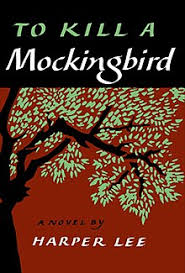Duluth Schools Under Fire From National Group for Censorship
 The National Coalition Against Censorship may be a highly politicized, New York-based, group of artistic, educational, religious and labor organizations that skews far left. But give NCAC credit for taking a bold stand in criticizing political correctness by Minnesota liberals when no one locally had the guts for the second time in less than a year.
The National Coalition Against Censorship may be a highly politicized, New York-based, group of artistic, educational, religious and labor organizations that skews far left. But give NCAC credit for taking a bold stand in criticizing political correctness by Minnesota liberals when no one locally had the guts for the second time in less than a year.
The latest case in point–Duluth Public Schools’ widely reported decision to ban two classic American novels from the classroom, Huckleberry Finn and To Kill A Mockingbird. Minnesota educational institutions and free speech advocates have remained largely silent on the school district’s controversial decision.
But NCAC called out Duluth Public School administrators in the strongest terms for caving in to public pressure, instead of doing their job.
While it is understandable that a novel that repeatedly uses a highly offensive racial slur would generate discomfort among some parents and students, the problems of living in a society where racial tensions persist will not be resolved by banishing literary classics from the classroom. On the contrary, the classroom is where the history, use and destructiveness of this language should be examined and discussed. It is there that the books’ complexities can be contextualized and their anti-racist message can be understood. Rather than ignore difficult speech, educators should create spaces for open dialogue that teaches students to confront the vestiges of racism and the oppression people of color.
Public schools are constitutionally bound by the First Amendment to prioritize legitimate pedagogical interests above the subjective viewpoints of individual members of the community. Parents can request an alternative book if they object to an assigned text. But no parent or group of parents is qualified to make the choice of what other children should read.
KBJR reported the local chapter of the NAACP applauded the decision to prevent students from discussing the novels in their coursework.
On Wednesday, the Vice President of Duluth’s NAACP, Claudie Washington, said Duluth teachers can’t teach the historical context of the novels, including discussions around racial slurs.
“Teachers don’t know how to teach that,” he said, “You know, that’s my belief and it’s not necessary that they even try. They can’t identify with that period.”
But the NCAC rejected the civil rights group’s support for stifling the First Amendment, appealing to the Duluth district to reconsider the book ban in determining next school year’s curriculum.

This marks the second time NCAC has criticized a Minnesota institution for censorship in a cultural issue that went national. The group harshly condemned the Walker Art Center’s decision to remove and ultimately bury Scaffold, a controversial sculpture due to criticism by Native Americans.
Members of the Dakota tribe were offended by the sculpture and demanded its destruction. After a meeting with tribal elders, Durant and the Walker agreed to dismantle the sculpture; Durant pledged to never re-create the work, and to transfer his intellectual property rights to the work to the Dakota Nation. The destruction of Scaffold sets an ominous precedent and sends a chill over artists’—and other cultural institutions’—commitment to political, socially relevant work.
As in the case of Duluth’s book ban, most Minnesota educators and free speech advocates looked the other way when the Walker deprived the public of the opportunity to discuss and experience the controversial artwork. But give NCAC props for prioritizing freedom of speech over popularity with other leftwing institutions they have much in common with.